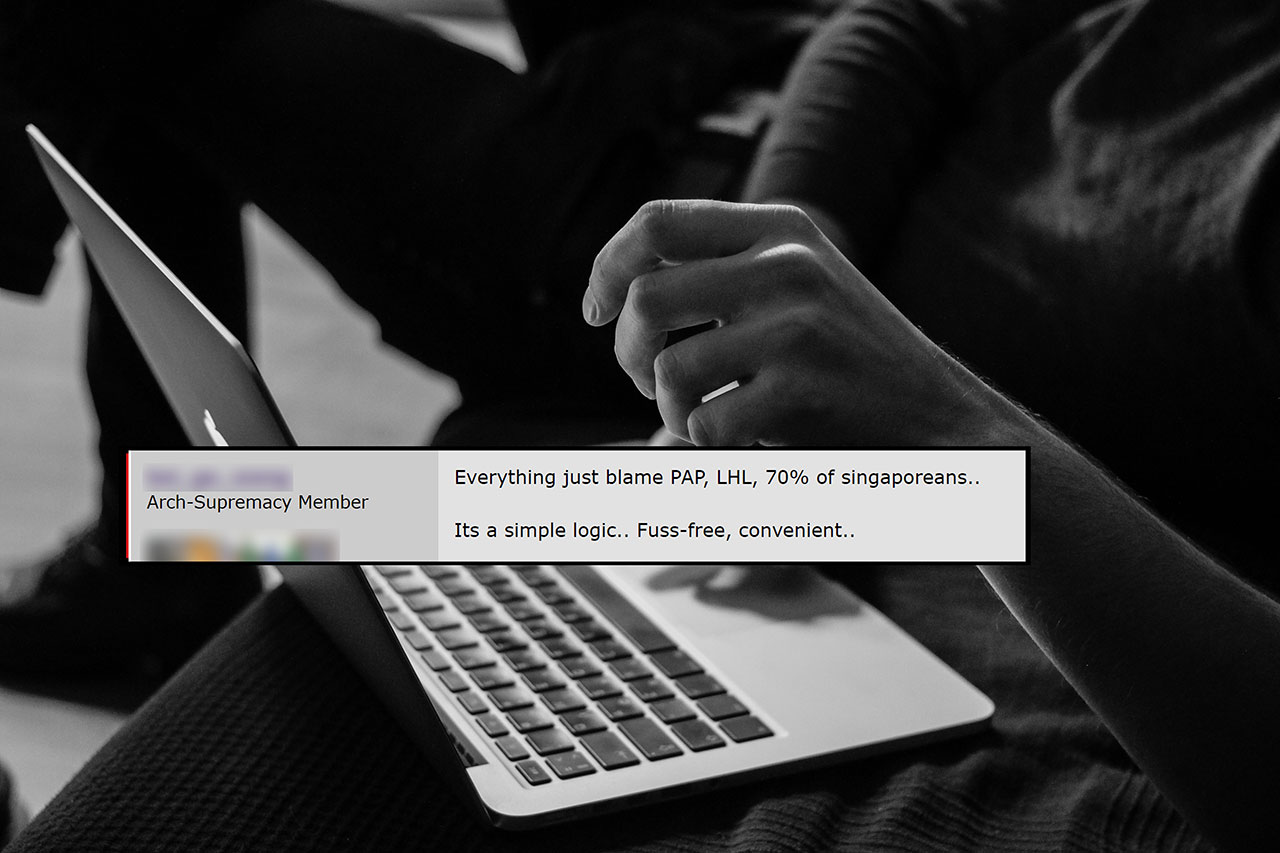Suppose I told you that the government was going to ban all independently owned media websites.
Even without verifying the information with a primary source, chances are these allegations would go viral on Facebook within a matter of hours, if not minutes. Singaporeans would start raising their pitchforks and spewing their objection to an authoritarian regime on social media.
It’s just so easy to tap into the ever-growing anti-establishment sentiment and allow emotions to trump common sense.
It’s even considered hip to hop on the hate bandwagon and slam anything and everything that the government has done because hey, lambasting the establishment shows that you are a perceptive citizen who does not take things at face value.
Today, agreeing with the government makes you look like a dimwit, a sheep blindly following the herd. (There’s a reason why it’s called the ‘silent majority’.)
But standing up to the government and calling its bullshit shows political awakening. You’re a rebel fighting for the greater good.

But many who oppose the establishment seem to be mistaken about the true purpose of their own involvement in the movement. They are not fighting for the cause, but simply there to pick a fight because they are disgruntled about expensive housing, broken trains, and bumping into more foreigners than locals in the neighbourhood.
Being anti-establishment has, unfortunately, become the political equivalent of a hipster who finds fault with everything outside his own worldview. “Everything also blame PAP” has become how citizens deal with their unhappiness without critically engaging with the big picture or looking inwards at how, perhaps, they might be part of the problem too.
Sure, active citizenry fundamentally involves us having opinions on certain issues and then acting on them. But opinions are simply brain farts if they are not thought through rationally and turned into action.
Furthermore, airing grievances through one-word or one-line comments only stokes the flames of hate, and does not generate the healthy debate needed to make the anti-establishment movement a legitimate force to challenge the ruling party.
What it really does is foster a culture of “complain first, think later”. Voicing one’s discontent online is convenient and effortless, and there’s no need to worry about consequences because there are so many other people doing it too.
It also allows one to make a lot of noise yet sit back and wait for the real brave souls to pick up the mantle – an indolent form of activism.
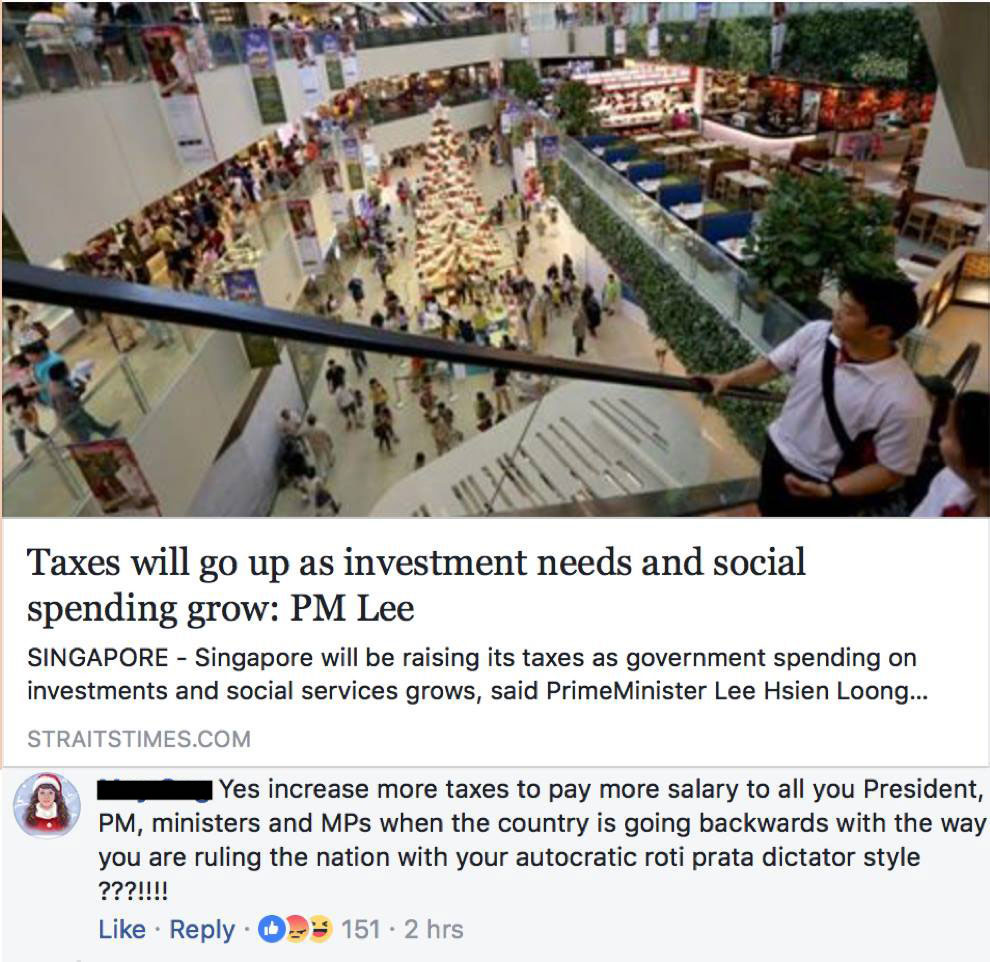
Comments by Singaporeans on the Facebook pages of The Straits Times and independent sites are testament to that.
Take the recent “controversy” surrounding the picture book The Phantom of Oxley Castle, for instance.
When The Online Citizen first (mis)reported that publisher Epigram Books was facing legal action by the prime minister, the immediate reaction online was tempestuous.
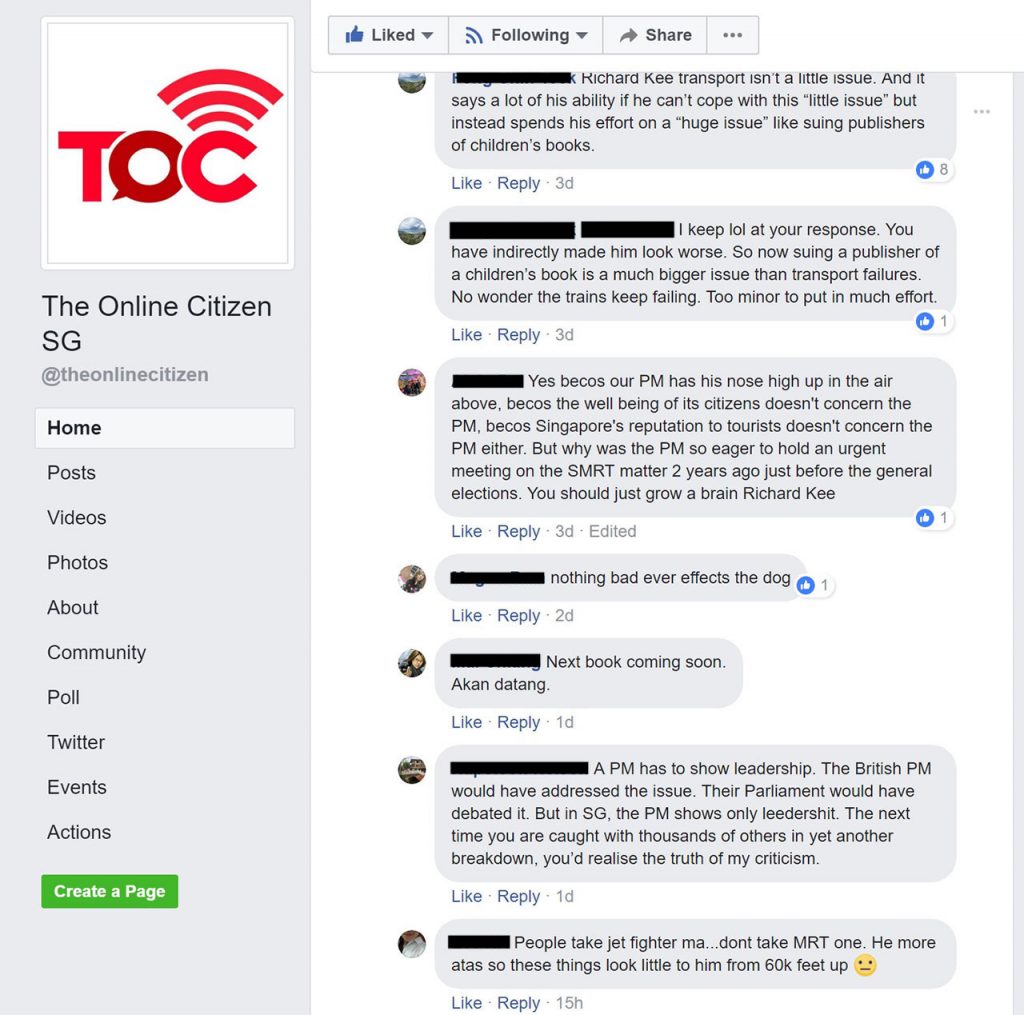
Netizens absolutely did not care that they might have been triggered by fake news.
By the time the Arts House had clarified that it did not force Epigram to cancel the launch event for The Phantom of Oxley Castle, as had been originally reported, the damage dealt by TOC’s original post was already irreversible. Only a handful suspected the entire saga was just a publicity stunt for the book that completely backfired, and criticised TOC for misleading readers.
As for everyone else, they were content with commenting on TOC’s post about PM Lee’s alleged insecurity and totalitarianism, even when it had already been confirmed that there was not even a letter sent by the Prime Minister’s Office.
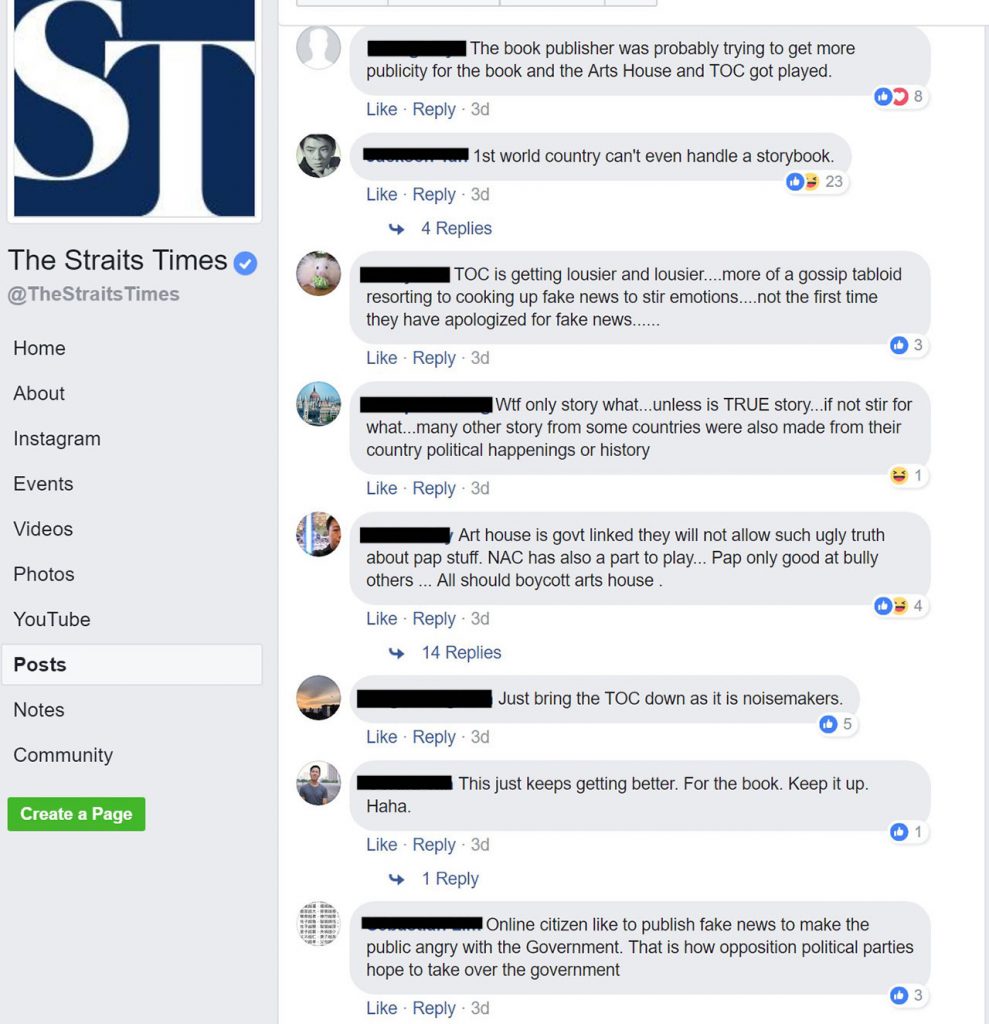

For many Singaporeans, dissing the government is like playing a game of Whac-A-Mole. The more strikes you deal with the mallet, the more fun it is, and the more points you rack up in the form of internet rep.
The thrill is addictive.
There is undeniably a lot that we can (and perhaps should) criticise the government for. Part of the sentiment stems from our lack of confidence in the government’s ability to fix pertinent problems that affect our daily lives (case in point: the lack of accountability in the SMRT debacle).
Perhaps we have even been inspired by the appeal of Bernie Sanders and his anti-establishment, anti-corporation rhetoric during his US presidential election campaign, something that a country run by the same party for more than 50 years can also relate to.
But our “complain only” brand of the anti-establishment movement is in fact counter-productive towards our society’s progress. It also brings on the frightening realisation that many of us are wilfully ignorant of our reluctance to be rational citizens when we choose to chant “Boo PAP” or “70 per cent voted for this” wherever and whenever.
In fact, such behaviour only makes you a drone of the movement that you champion for, just like the pro-establishment supporters that you make fun of.
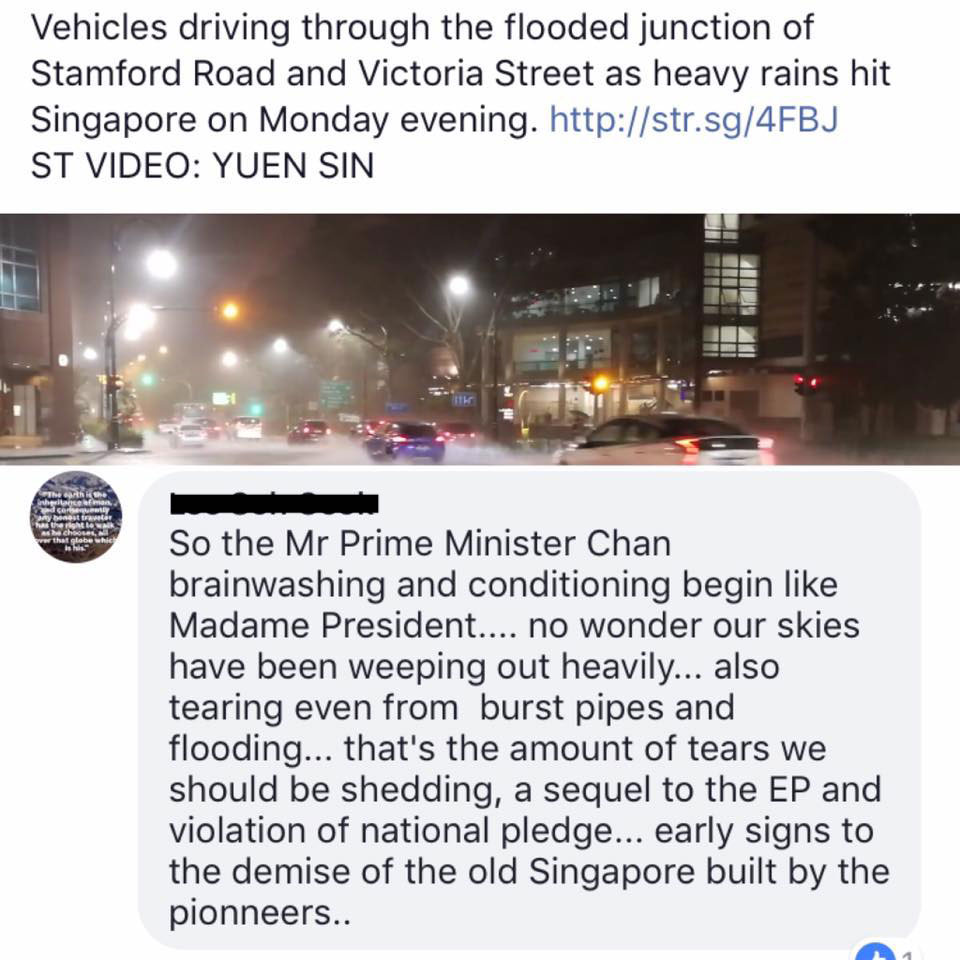
Due to a lack of a robust multi-party system, the movement is highly fragmented and unable to carry enough momentum to pose a threat to the ruling party. As the 2015 General Elections showed, even though personalities like Amos Yee and Han Hui Hui (amongst others) are incredibly vocal, loud dissent online may not truly indicate a groundswell.
Thus, Singapore’s political structure, however undemocratic it may be, is both a curse and a blessing. And more so the latter in today’s unpredictable geopolitical climate.
As Oxford professor Catherine De Vries writes in the wake of Brexit and the election of Donald Trump, “[T]he success of anti-establishment forces threatens the governability of political systems. Their rejection of political compromise means that members of anti-establishment parties do not cooperate within the day-to-day parliamentary and committee structure.”
If Singaporeans are too obsessed with rejecting any governmental policy for the sake of furthering the anti-establishment movement, then rest assured that ultimately, you would have achieved little for the country.
There’s nothing cool about passing wind on social media.

